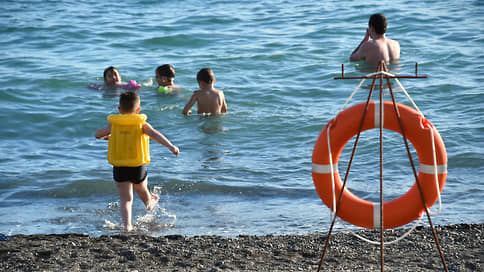« And how was it online? » Parents ask far too little about their children
:format(webp)/s3/static.nrc.nl/wp-content/uploads/2025/02/18162750/web-2202BIN-Online-leefwereld-van-jongeren-Olf-de-Bruin-TRANS.png)
The extinguishing usually starts within a day or two – depending on how quickly the trust has been won. As soon as someone has shared the first nude photo, the tone of the conversation changes. That one new Instagram follower or Snapchat friend, first so charming and interested, suddenly talks in capital letters. He wants to see money: thousands of euros within ten seconds. Otherwise the image is spread.
This is the scenario that Babette Keuning and her colleagues of Helpwanted Hearing daily. Of the more than 12,000 reports that arrived last year at the helpline for online cross -border behavior, almost 40 percent were about blackmail with intimate images, or sextortion. For boys, says Senior Employee Keuning, it is usually about money. « Girls are often put under pressure to share more images. » About half of the detectors are a minor. They see the tip of the iceberg at Helpwanted, they think. « We know that not all victims are looking for help. »
We know that not all victims are looking for help
How do you protect children and young people against the dangers of the online world? Against fraud, disinformation, addictive algorithms, cyberbullying, advertising, privacy violation, intense images, deception by AI? The rules are being tightened up all over the world – this Tuesday the House of Representatives will vote on one motion For an age limit of fifteen years for social media. At the same time, you can read in policy documentsthinks the Dutch government thinks the online « resilient and way » of children a « joint task ». Parents and other educators must also actively contribute.
And according to experts there is a lot to be gained. Children's ombudsman Margrite Kalverboer noted this fall That parents hardly talk to their children about their online interests or what they experience on the internet. In its eyes, digital education – just like the government's policy, is mainly limited to checking and protecting.
In the Iene Miene Media researchthat every year measures how families deal with media, about half of the parents indicate that they barely talk to their young children about videos or games. Almost one in five says they never intervene in their child's media use.
Challenge
Media desidic Marije Lagendijk finds it logical that many people find digital educating a challenge. The current generation of parents, she says, did not grow up with digital media. « There was an era before the internet and then. For children of today, that distinction does not exist: the online world is just as real as the physical. ” What makes it even more difficult is that the technology develops so quickly. Certainly with the arrival of the smartphone. « You used to have a TV or PC in the living room and there was always supervision. Platforms with hundreds of games and chat functions with strangers did not yet exist. ”
Lagendijk sees that parents often know what they have to do, but not well how. « It usually doesn't get much more concrete than the advice » Talk about it with your child « . » Her book Digital education (2024) Therefore filled them with as many practical insights as possible. She compares digital parenting with swimming lessons: nobody throws his child into the deep end, yet that is often what happens when educators give children a screen.
The distinction does not exist for children: the online world is just as real as the physical
In fact, she says, the first screen contact is the moment when digital education should start. In her book, the focus is on children between the ages of eight and twelve – the phase in which they become more digitally independent. Begin, Lagendijk advises, at least well before the first year. « Then everything changes for a child: your body, your brain, you come from your safe, familiar environment. At the same time, being online is becoming increasingly important. ”
First try to gain insight into what a child does on the internet, says Lagendijk. « In most families, the question is » how was it online? » rarely. And if, however, parents can often do little with the answer. » According to her, it helps to choose a good time – for example during a walk with the dog. « Show interest, invite your child to tell. » Her book contains a whole host of example questions. What was the best video you saw today? Who do you follow on YouTube, Tiktok or Insta? What does the person share? Do you ever see things that you don't like? How do you feel after you have been behind a screen for a long time? Who do you usually talk online?
Read also
It is three o'clock in the afternoon and Joëll (13) has already tapped 6.5 hours today
Screen
Felice (11) received her first phone last year, in group 7. She hadn't nagged it, but she was happy. Finally she got the jokes in the family app. « It's great that I don't have to wait a whole weekend to chat with girlfriends, and that I can call or app my parents when I play somewhere. » She is on Snapchat and a bit on tap. There she likes to look 'DIY videos': about creative things you can make. « But I don't post videos myself. I just find that weird. ”
It is half past five on Monday evening and her screen time is 29 minutes so far. Felice was at school all day and then had tennis lessons – she had little time to sit on her phone. Maybe she will just play Block Blast (« a kind of Tetris »). There are no strict agreements about her phone use. « Isn't it? » Felice looks questioningly at her mother Hilda Pluckel (45)
/s3/static.nrc.nl/images/gn4/stripped/data128716392-461b8e.jpg|https://images.nrc.nl/fmMeMqMIU0jaruer1VO_LOvh_ak=/1920x/filters:no_upscale()/s3/static.nrc.nl/images/gn4/stripped/data128716392-461b8e.jpg|https://images.nrc.nl/JMBfdJVz0gvSjIrJcslT1q9Y770=/5760x/filters:no_upscale()/s3/static.nrc.nl/images/gn4/stripped/data128716392-461b8e.jpg)
He shakes her head. « No. In any case, the phone does not go to bed. And we sometimes discuss what kind of things you see. »
Felice: “Slime. I just think that's satisfying To look at. And unboxing-Videos, but my parents don't understand that. «
Hilda installed Chatlicense for Felice, an app that teaches children to deal with a smartphone by playfully – walking through the fictional city of ChatCity – confronting with dilemmas and events from the online world. Parents can watch through a platform to which skills their child teaches and consult a guide about popular apps.
Felice finds the app – the makers call Chatlicense a 'digital swimming diploma' – useful. « For example, you learn what kind of things you should or should not share. Imagine taking a picture of someone in the mud, and he looks a bit weird. Then you can swipe to the right to share and you see what happens if the person actually didn't want to. » And she once got one random Message from a bank. Felice: « I had learned on Chatlicense that you should never click on the link, otherwise you will lose a lot of money. »
Should the government ban social media for children under a certain age, such as in Australia? Felice thinks that is going too far. « Not sixteen years old, that's really too old. Under twelve years old I would like in itself, then you are still a little child. I also think: if it is allowed, you will be sitting on it immediately. ” She pulls her knees and thinks for a moment. « You see that many teenagers no longer get happy … wouldn't it be better if the government told those companies: do something about it, otherwise we forbid the app? »
Age prohibition
Media desidic Marije Lagendijk also finds an age ban not a good idea – just like many other. « Then the social media platforms will recover and you will soon be releasing young people at the age of fifteen without any preparation in a harmful environment. And how do you want to check users? Should they then upload an ID card or passport? That seems quite a privacy violation to me. «
She sees plenty of other options to tackle the many social media problems. « Pay structural attention to the harmful sides, make it part of the curriculum at school. Give parents clear guidelines, for example through the consultation office, about what a healthy screen time is. ”
Educators, thinks Lagendijk, now feel a lot of social pressure to give their child a phone: what if it is the only one without it? « I hope that people will question that norm more often. Most social media platforms already have an age limit of thirteen years or older, and that is not for nothing: your brain must be sufficiently developed to oversee the complex online world. ”
Mucus. I just think that's satisfying to look at. And Unboxing videos, but my parents don't understand that
At Helpwanted help line they speak a few worried parents every day. The very first what Babette Keuning and her colleagues then say, « How good that you found us. » They listen, reassure and give advice as well as possible. In the case of sextortion that is for example: break the contact with the extperer and send the person no money or more photos. If necessary, make a declaration. (Keuning: « There are often criminal gangs from abroad behind it. ») They advise parents to stay calm, offer support (« What do you need to feel better? ») And not to do it Victim Blaming. « Emphasize that the responsibility lies with the perpetrator. »
Many parents, they know at Helpwanted, want to protect their child from hazards by taking telephones or limiting their internet use. Understandable, but overprotection is sometimes counterproductive. It can take care of, Keuning, that children are less likely to ask for help, for fear of punishment. Talking openly about it therefore works best. « Especially about the fun sides of the internet. »
Read also
No social media under fifteen years. Is that possible? And does that make sense?

:format(webp)/s3/static.nrc.nl/wp-content/uploads/2024/12/18150608/data125728883-eddf1c.jpg)
:format(webp)/s3/static.nrc.nl/wp-content/uploads/2025/06/05163439/data133217982-f902a2.jpg)
/s3/static.nrc.nl/wp-content/uploads/2025/06/06205808/web-0606BINspermadonatie.jpg)
/s3/static.nrc.nl/images/gn4/data133317775-d0126f.jpg)



